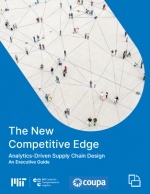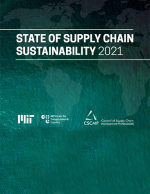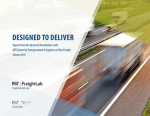Artificial Intelligence/Machine Learning + Supply Chain Planning
MIT’s Center for Transportation and Logistics (CTL) held a highly interactive one-and-a-half-day roundtable on the use of machine learning (ML) in supply chains.
Representatives from 16 companies in a diversity of industries discussed their organizations’ uses of ML in a variety of forecasting, optimization, and management applications in their supply chains.
To ensure candor at the event, this report was prepared under the Chatham House Rule of not identifying the specific speakers or affiliations associated with their anecdotes, insights, or recommendations.
During the first half day of the roundtable, presenters from CTL introduced some of the fundamentals of ML. Short tutorials covered supervised learning, unsupervised learning, reinforcement learning, and neural networks.
The presenters described several common data-driven algorithms for prediction, classification, and clustering. A later tour of CTL’s Computational and Visual Education (CAVE) Lab showed how visualization can enable informed, data-driven decision making.
Roundtable continued
The second full day of the roundtable focused on specific supply chain applications of machine learning related to demand forecasting, revenue management, and transportation. Discussion of each application began with a kick-off case study presented by one of the industry participants. This was followed by in-depth discussions of the participants’ experiences and issues with machine learning for that application.
A beverage distributor described how it uses ML for demand forecasting to more accurately plan from the interplay of sales trends, holidays, weather, and promotions on sales volumes. An omnichannel apparel retailer presented its use of ML to optimize price markdowns on fashion items. An ocean freight data company and a 3PL presented half a dozen uses of ML in transportation to predict transportation asset activities, in-transit risks, spot market prices, and other applications. A presentation on autonomous vehicles illustrated the power of ML as well as the weaknesses of ML. This led to a recommendation of creating man-machine collaboration for vehicle operations.
In the final session, the participants discussed many cross-cutting issues relating to how organizations design, develop, and deploy machine learning systems. Key organizational issues included: how to find or create ML talent with the required knowledge of business, math, statistics, and computer science; where to place ML teams in the organization’s structure; and how to solve change management issues in deploying data-driven automation.
Key takeaways included:
- ML can improve forecasting of supply, demand, pricing, timing, etc. to proactively manage the future.
- ML can cluster and classify supply chain conditions, events, product, and customers, which can help manage complexity through differentiated responses and tailored best practices.
- ML requires data that needs to be gathered, aggregated, cleaned, and manipulated.
- ML requires more math, statistics, and computer science knowledge (and tools) than what most business data analysts and IT professionals have.
- Future supply chain leaders will need to understand enough about what is possible using ML both technologically and organizationally in order to improve business performance.
What’s Related




Favorites





